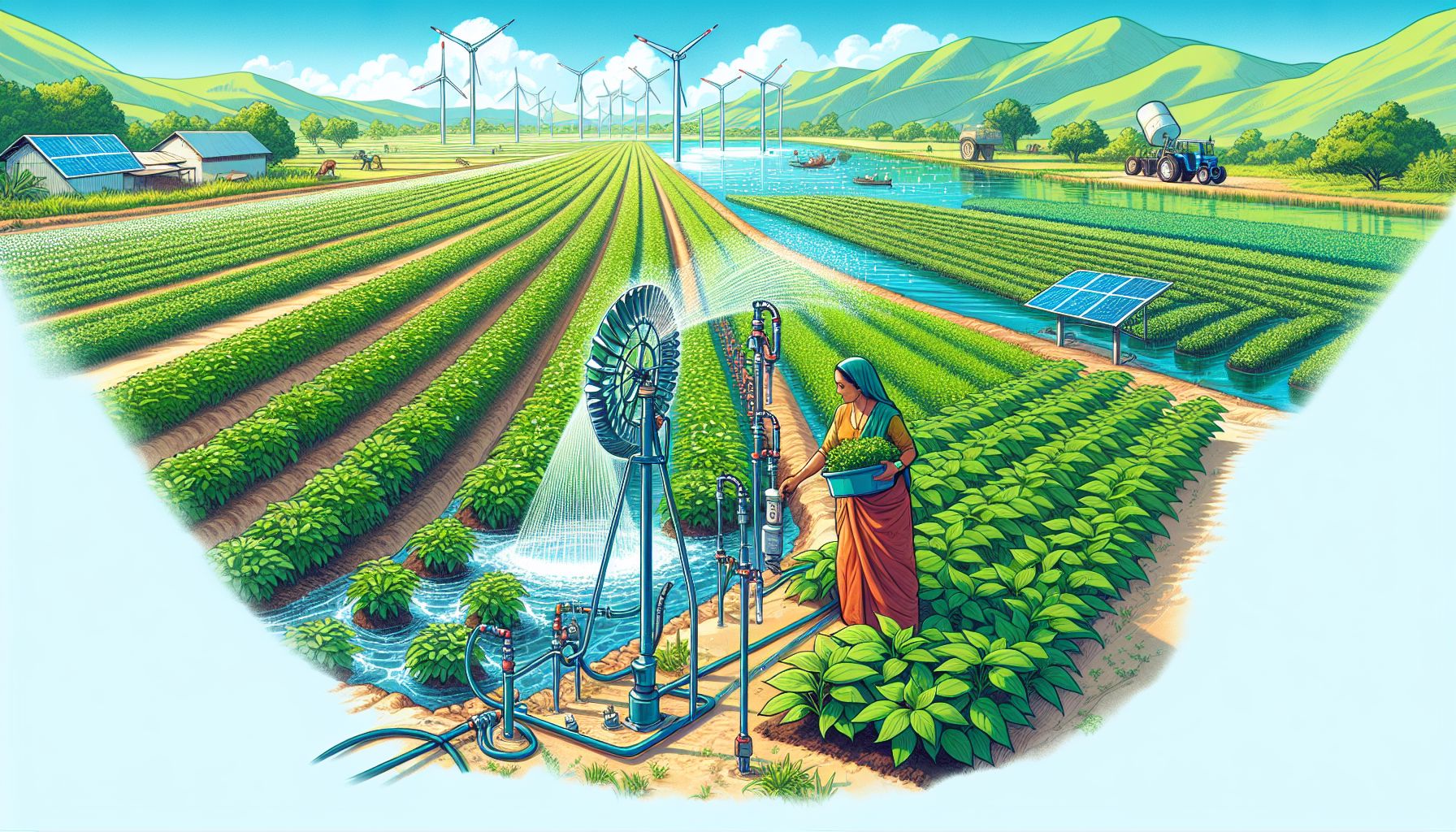In today’s world, the importance of sustainable water management practices for agriculture cannot be overstated. With growing populations and increasing demands for food production, it is crucial that we find ways to optimize water usage in agriculture while also preserving this precious resource for future generations. In this article, we will explore some of the best practices for sustainable water management in agriculture and how they can benefit both the environment and farmers.
Importance of Sustainable Water Management in Agriculture
Agriculture is one of the largest consumers of freshwater resources, accounting for approximately 70% of global water usage. With water scarcity becoming an increasingly pressing issue, it is essential that we adopt sustainable water management practices to ensure the long-term viability of our agricultural systems. By implementing efficient irrigation techniques, utilizing rainwater harvesting methods, and reducing wastage through improved water conservation strategies, farmers can not only increase their crop yields but also protect water sources and ecosystems.
Best Practices for Sustainable Water Management in Agriculture
1. Efficient Irrigation Techniques
One of the most effective ways to reduce water usage in agriculture is by implementing efficient irrigation techniques such as drip irrigation and precision agriculture. Drip irrigation delivers water directly to the roots of plants, reducing wastage through evaporation and runoff. Precision agriculture utilizes technology such as sensors and drones to monitor soil moisture levels and optimize irrigation schedules, ensuring that crops receive the right amount of water at the right time.
2. Rainwater Harvesting Methods
Rainwater harvesting is a simple yet effective way to capture and store rainwater for agricultural use. By collecting rainwater from rooftops, roads, and other surfaces, farmers can supplement their irrigation needs during dry periods and reduce reliance on groundwater sources. Rainwater harvesting also helps to prevent soil erosion and replenish groundwater reserves, contributing to overall water conservation efforts.
3. Water Conservation Strategies
Implementing water conservation strategies such as mulching, cover cropping, and crop rotation can help farmers reduce water loss due to evaporation and improve soil moisture retention. Mulching involves covering the soil with organic materials such as straw or leaves to reduce evaporation and maintain soil temperature, while cover cropping and crop rotation help to reduce water stress on the soil and improve overall soil health.
4. Integrated Water Resources Management
Integrated water resources management (IWRM) is a holistic approach to managing water resources that takes into account the interconnected nature of water systems. By coordinating water use across different sectors, such as agriculture, industry, and urban areas, IWRM seeks to optimize water allocation and usage while preserving ecosystem integrity. By promoting cooperation and collaboration among stakeholders, IWRM can help ensure the sustainable management of water resources for all.
Benefits of Sustainable Water Management in Agriculture
Implementing sustainable water management practices in agriculture offers a wide range of benefits for both the environment and farmers. By conserving water resources, reducing pollution from agricultural runoff, and improving soil health, sustainable water management practices can help to ensure the long-term viability of agricultural systems and protect water sources for future generations. Additionally, adopting these practices can lead to increased crop yields, higher quality produce, and lower production costs, ultimately benefiting farmers’ bottom line.
In conclusion, sustainable water management practices for agriculture are essential for ensuring the resilience and sustainability of our food systems in the face of growing water scarcity and climate change. By implementing efficient irrigation techniques, utilizing rainwater harvesting methods, and promoting water conservation strategies, we can protect water sources, preserve ecosystems, and enhance agricultural productivity for years to come.
Sources:
1. Food and Agriculture Organization of the United Nations. (n.d.). Sustainable agriculture and sustainable water management. https://www.fao.org/agriculture/crops/thematic-sitemap/theme/spi/sustainable-water-management/ar/en/
2. United Nations Environment Programme. (2021). Towards sustainable agriculture: Food and Agriculture Organization (FAO). https://www.unenvironment.org/explore-topics/sustainable-development-goals/why-do-sustainable-agriculture/food-and-agriculture
